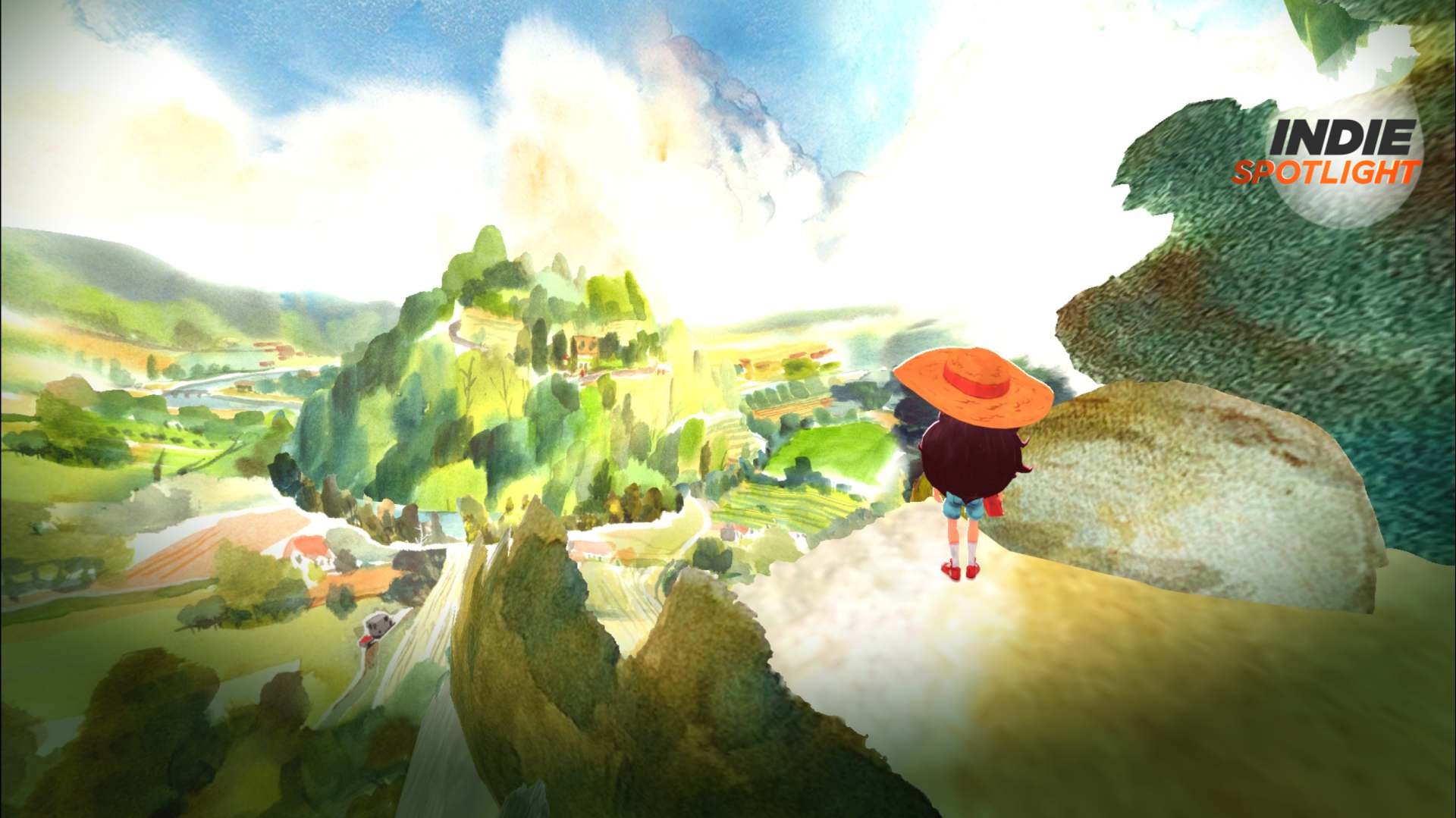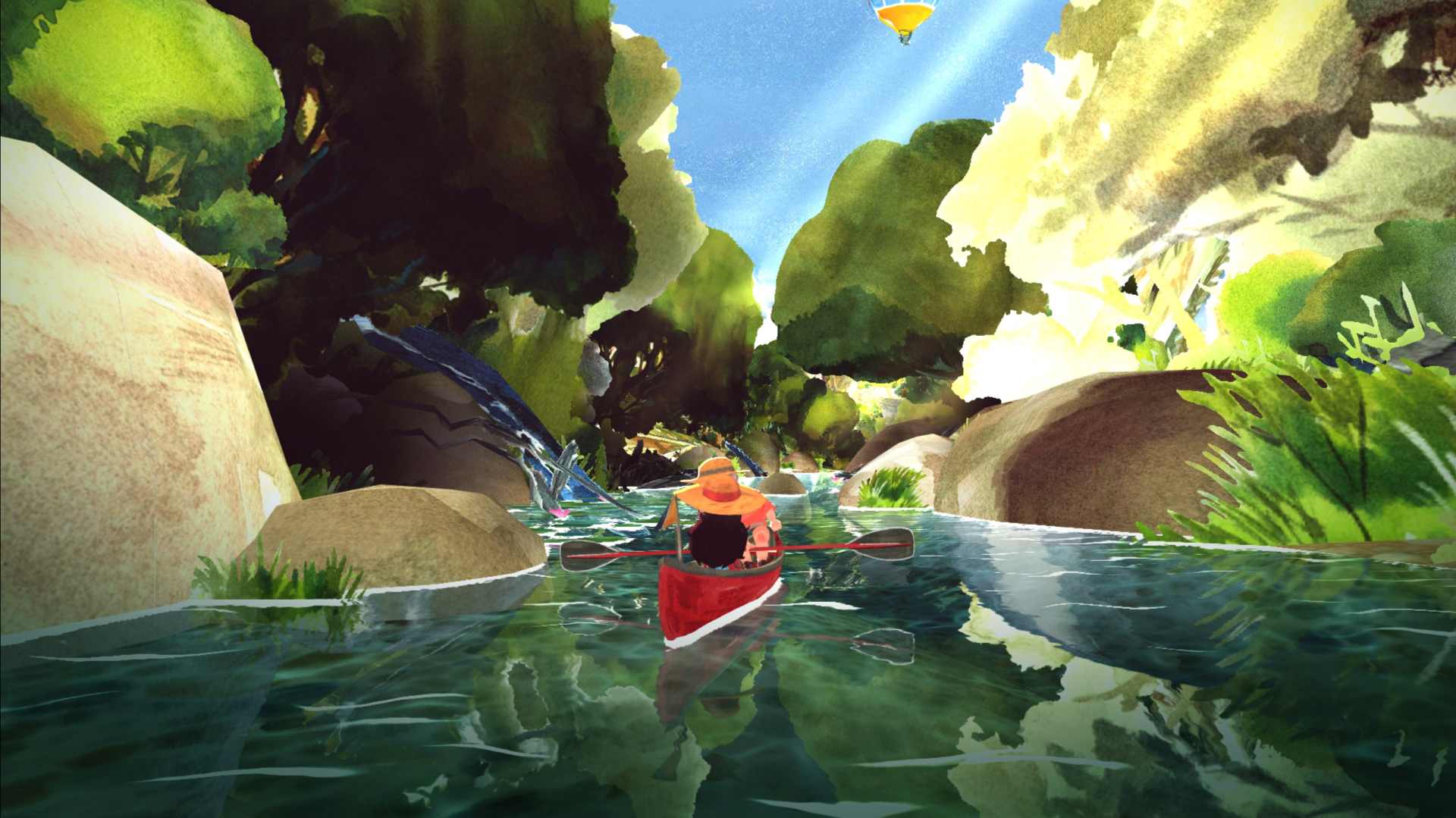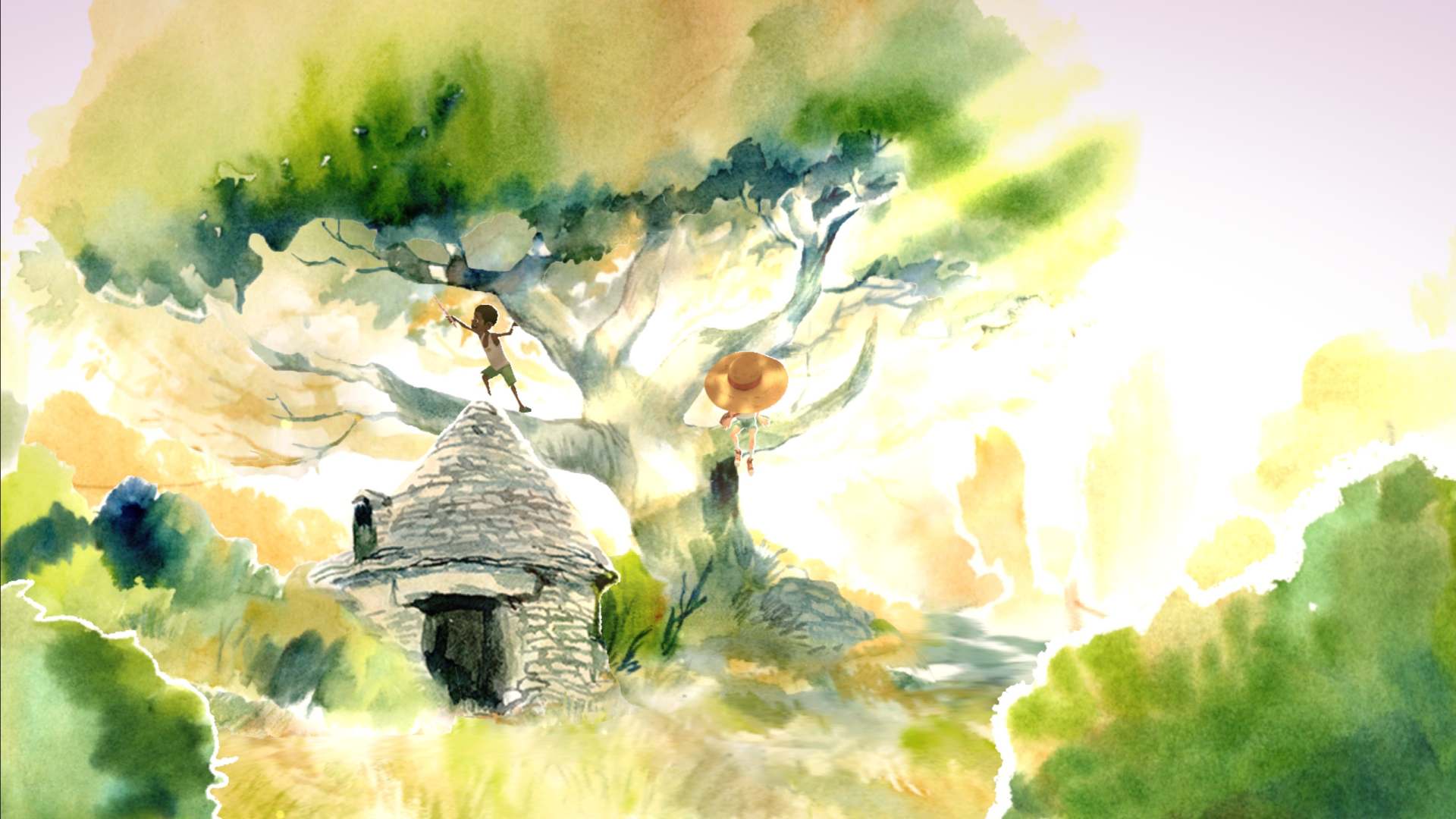
It's almost uncanny, the similarity between Dordogne and my own connection to France. I'm hesitant to cast myself as the main character too quickly, but as I pottered through the opening hour or so of this beautiful watercolor adventure, I was struck by its authenticity, the extent to which it lives and breathes the attitudes and lifestyle of its corner of the French countryside.
Dordogne follows Mimi, a young woman with next to no recollection of her childhood. After the death of her grandmother, Mimi travels to her home in the titular French region of Dordogne, seeking answers about the rift at the center of her family's lives. As Mimi explores the house and surrounding countryside, flashbacks start to fill in the blanks, weaving a gentle story about the relationships that shape us.

But it's neither that mystery nor the beautiful, painted backdrops that drew me to Dordogne. My grandmother is French, and spends her summers about 30 minutes away from the Dordogne in a neighboring region called Gironde. Like Mimi's grandmother after the death of her husband, she lives in a large white house on top of a hill overlooking a gently winding river valley. A peculiarly stapled-on toolshed and a swing hanging from the trees outside the house complete a surprisingly accurate facsimile of the house I know.
Like Mimi, I would arrive at this house in the summertime, sometimes reluctant to leave my friends for the quiet rurality of the French countryside. But, like Mimi, within a day or so any thoughts of home would have evaporated, replaced by the seemingly endless opportunity for exploration, the calm of a slower pace of living, of a lifestyle more attached to the world around you.
Je ne sais quoi
Capturing that laissez-faire attitude in a video game seems a complicated feat, but Dordogne pulls it off, a combination of its painterly, sun-drenched world and its deeply tactile gameplay creating a realistic, 'time capsule' feeling. Everything Mimi does is an individual movement – the turn of a key, the unpacking of a suitcase, the sticking of photos in a scrapbook all combining to create the childlike feeling of being a little too small for a space you're not fully familiar with. This rural world is prepared to hold Mimi's Parisian, city-slicker ways at arms' length until she's prepared to immerse herself in it, and as she does so, it feels as though it unfurls around her.
As I invested in Dordogne, alongside Mimi, I found a world that I felt I already knew. From the checkerboard cloth on the kitchen table to the bustle of the market in the local town, I found a place within this game that I've been to before. Even as the game's narrative wound its story of personal grief and the importance of childhood wonder, there's such a clear focus on a specific place and time that Dordogne never lost its hold on me. Its understanding and presentation of its setting is clearer - more focused, more authentic - than that of any grand, open world I've ever delved into.

Along with another 2023 indie, Tchia, Dordogne has encouraged me to get back to grips with my French language skills. The word 'bijou' stood out as a pertinent descriptor for this game; my understanding of it comes from real estate, where it's now often used as a polite way to describe an apartment that's probably smaller than you'd like it to be. Dordogne is indeed a pretty short experience – you'll comfortably be able to play through it all in a single sitting – but this game actually lives up to the original meaning of bijou. It's a term from jewelry and craftsmanship, a word that means something small, delicate, precise. A gem, perfectly crafted and beautiful to look at. In the gem that is Dordogne, I see my own memories reflected, making this, for me, a truly special experience.
Sign up to the GamesRadar+ Newsletter
Weekly digests, tales from the communities you love, and more
If you're looking for more great recommendations, be sure to check out our Indie Spotlight series.

I'm GamesRadar's news editor, working with the team to deliver breaking news from across the industry. I started my journalistic career while getting my degree in English Literature at the University of Warwick, where I also worked as Games Editor on the student newspaper, The Boar. Since then, I've run the news sections at PCGamesN and Kotaku UK, and also regularly contributed to PC Gamer. As you might be able to tell, PC is my platform of choice, so you can regularly find me playing League of Legends or Steam's latest indie hit.


